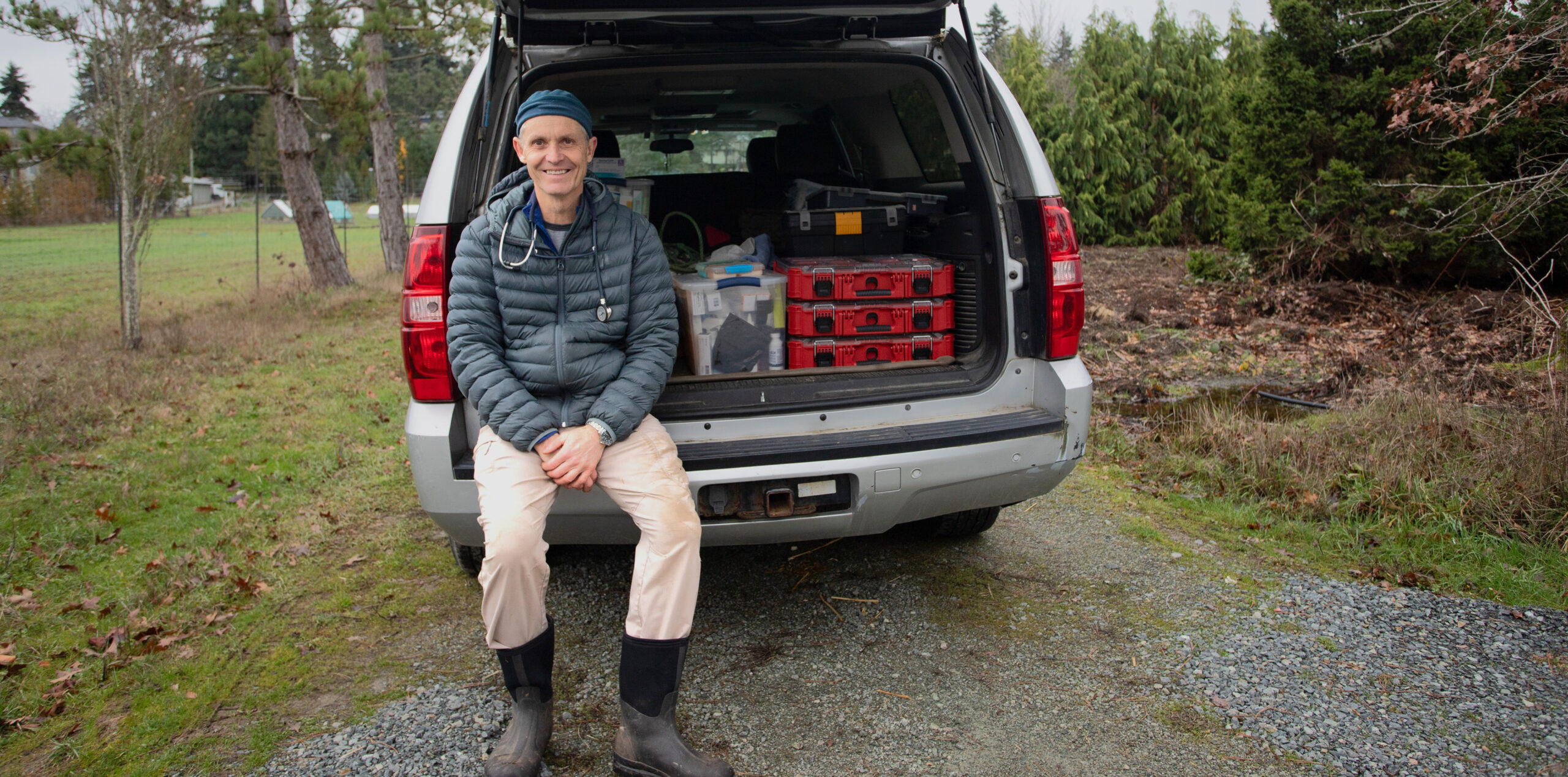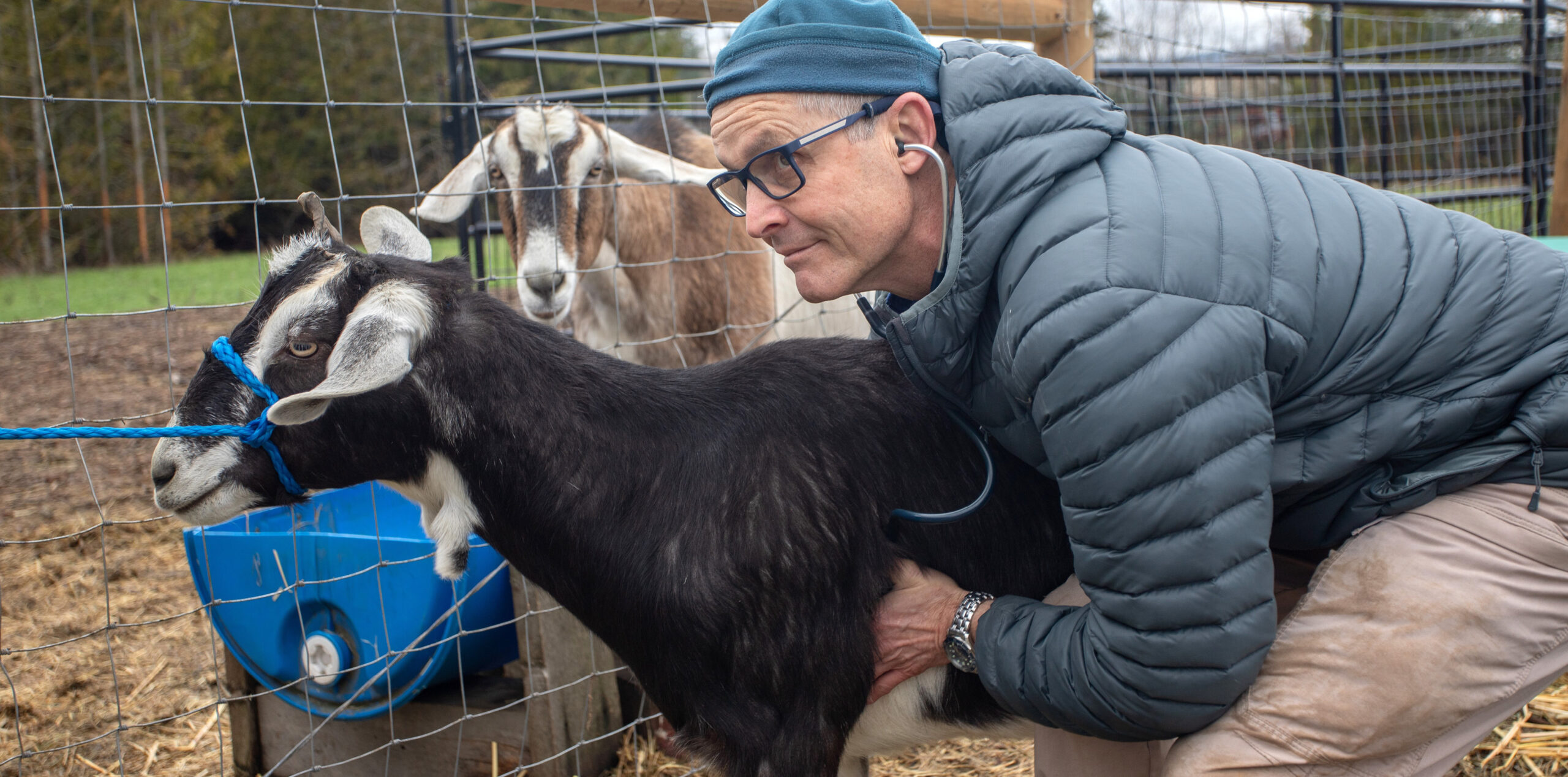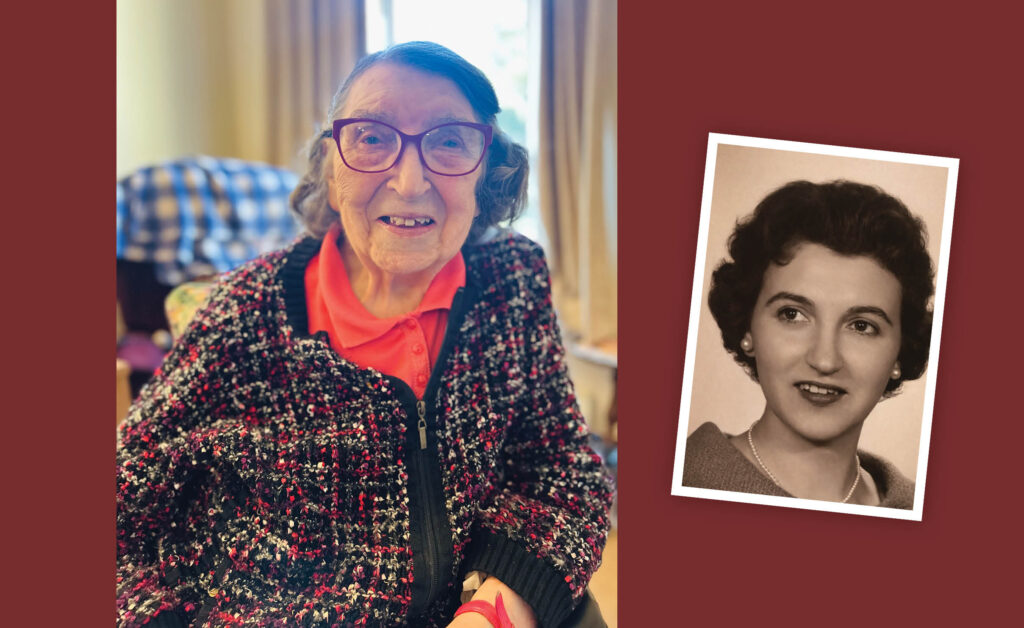by Jo Barnes | photos by Kathryn Alvarez Photography –
The patient is listless, has lost a bit of weight and is moving slowly. Their food hasn’t been touched and they just want to be left alone. And on top of all that, they haven’t laid an egg in days!
As you might have guessed, this is not a patient in our medical system, but an unhappy chicken. With the advent of Covid, an increasing number of Peninsula residents have taken up backyard farming with animals that would not be cared for at any standard animal clinic. Whether it’s feathered or furry animals, their care is not always straightforward. They need a helping hand from a trained expert in farm animal care like local veterinarian, Dr. John Pollock.
“Animals can’t help themselves. They rely on us,” shares Dr. Pollock. “I am always educating. It’s all about the welfare of the animals and giving people tools to keep animals healthy.”
Since moving to the Saanich Peninsula in 2020, with his wife, who is also a veterinarian, and their two daughters, Dr. Pollock opened a mobile veterinary practice which allows him to bring a variety of services to the homes of local residents. The significant number of small-scale farmers on the Peninsula keeps him busy. “I get a lot of referrals and provide service for different animals including poultry, pet pigs, sheep, goats, llamas and alpacas,” he notes.
A veterinarian with over two decades of experience, Dr. Pollock brings an impressive background of animal care including working in a mixed-animal practice, serving as Clinical Professor at Tufts Cumming School of Veterinarian Medicine, and working for a biomedical company where he oversaw a large herd of transgenic dairy goats that produced therapeutic proteins in their milk for human medicine.
Having previously worked in New England, Dr. Pollock notes that the Saanich Peninsula is a very different setting with specific farming lifestyles and client needs. “Most of the farms in New England were very large production facilities with up to 6,000 cows, whereas here it is mostly backyard farms with a few animals,” he relates. “Situations and problems are the same except that backyard farmers treat their small ruminants like pets and not production animals. They’re willing to do more or spend more on all available diagnostics and treatment.”
With the large number of local backyard farms, Dr. Pollock’s skills are sought after as many of his clients are new to farm animal husbandry. “I can’t turn off my phone,” he says. “I can’t refer large animal clients to emergency centres like I can with small animals when they call after hours. I’m all they’ve got locally.”
Sometimes the service isn’t provided in a stable or barn, but in someone’s garage. “I had to do a C-section on an angora goat late at night in the garage,” he shares. “The baby was stuck in the birth canal. It all went well though. To pull out a live kid and see it take its first breath is wonderful.”
Caring for farm animals requires attention to many factors including housing and fencing, adequate nutrition and disease prevention. It can all be challenging for new farm animal owners, and a lack of knowledge can have negative consequences. “Improper husbandry can be a big problem,” he remarks. “I see animals that have been fed plant clippings that are toxic and can lead to bloat, regurgitation and death in some cases. A common problem is that farmers are using dewormers inappropriately, such as administering to animals that don’t need it or, when dewormers are needed, often using them at the wrong time or dosage or applying ones that are no longer effective.”
In addition to these concerns, Dr. Pollock notes that the Peninsula offers particular weather challenges. “Much wetter conditions in winter here can lead to rain scald (skin issues) and foot rot,” he says. “Parasites are worse here because of mild winters. In New England, extended periods of freezing temperatures allowed for a ‘winter kill’ of parasites and their eggs in fields or pastures. That rarely happens here, so parasites will always be a big problem.”
Dr. Pollock arrives knowing he’ll need to make thorough assessments and effective decisions. “I get to know owners and establish good relationships,” he comments. “I see how an animal is taken care of and its environment. I ask the right questions to get a good history and rely on my years of experience and even some detective skills.”
The learning curve for backyard farmers can be steep as, according to Dr. Pollock, they need to be aware of the importance of ensuring animals are not overcrowded, have proper nutrition, elevated feed and water sources to avoid fecal contamination and opportunities for rotational grazing.
Whether experienced or novice, backyard farmers face challenges when raising healthy and happy animals. But with the expert assistance of veterinarians like Dr. Pollock, they can have those chickens clucking happily and laying those eggs in no time.






